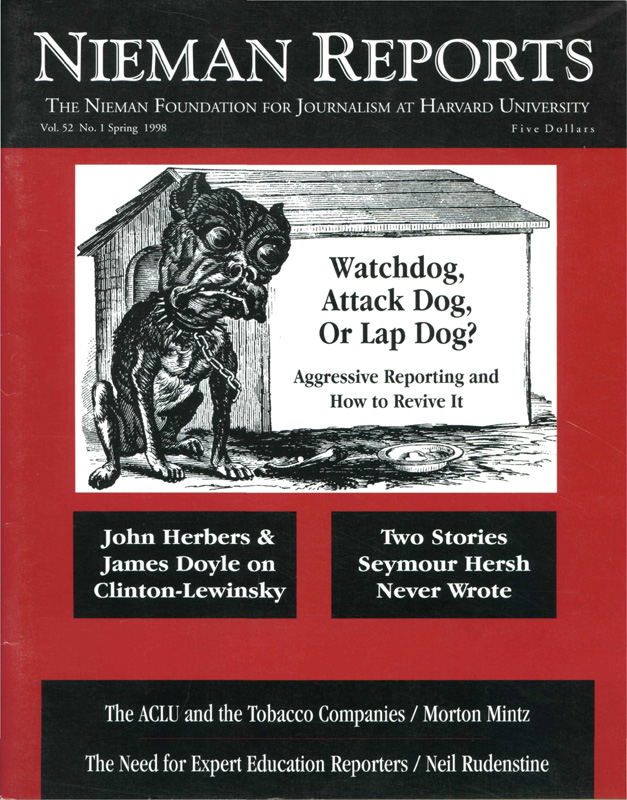ISSUE
Spring 1998

Watchdog, Attack Dog, or Lapdog?
This issue on Watchdog Journalism originated with a call by Murrey Marder, the retired Washington Post Diplomatic Correspondent, for a return to more aggressive, but responsible, reporting. The package begins with two articles on the media's handling of the accusations that President Clinton had an improper sexual relationship with Monica S. Lewinsky. Excerpts from a seminar by Seymour Hersh, the Pulitzer Prize-winning investigative reporter, follow. Then we offer position papers on the status of watchdog journalism in four areas—the economic sector, state and local government, national security and nonprofit organizations.
Articles
Features
Types of Nonprofits
March 15, 1998